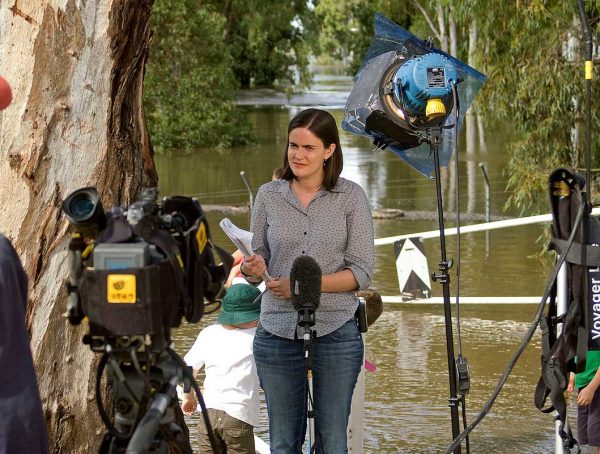As a broadcast voice specialist, I can’t listen to the news without cringing at some of the pronunciations I hear. And I’m not talking about blatant mispronunciations like “nucular” for “nuclear.” I’m talking about the erosion of the consonants in words. This erosion can turn the word “center” into “sinner” or “ask” into “ass.” This can cause embarrassment, but more importantly, it can make your sentence unintelligible to the listener.
The best voice quality in the world is worthless if it is not articulated into words correctly. Words in our language are made up of phonemes (individual sounds) that combine to give meaning. We use our articulators, the lips, teeth, tongue, and jaw, to shape sound into phonemes to make words.
The expressions, “lazy tongue” or “lazy mouth,” indicate the importance of flexibility for good articulation. If the articulators are sluggish, it is difficult to articulate sounds clearly. Frequently this is also referred to as “sloppy speech.” Sometimes this is adequate in relaxed conversation, but poor articulation is never acceptable for broadcasting.
Listening to broadcasters, I hear omissions of phonemes to greater or lesser degrees. Intelligibility, credibility, and precision of pronunciation are all linked. For this reason, working to pronounce words correctly is essential.
Precision of pronunciation can be improved with practice. Try taking some copy home and marking all the ending plosive sounds (/t/ /d/, /p/ /b/, /k/ /g/) with a highlighter. These sounds should have an explosion of air when they are produced correctly. Practice by over-pronouncing these endings. When you practice in an overdone way, your brain registers the new, precise articulation more readily.
I don’t suggest marking ending consonants on your actual on-air script because it may cause you to sound overly precise. The goal is to sound conversational while articulating most of the ending consonant plosive sounds.
Tongue twisters can help warm-up the articulators as well. Repeating the phrase, “You see Oz,” in an exaggerated manner stretches the mouth and jaw. Any activity that brings more openness and flexibility into the mouth area and more agility to the tongue can help improve articulation.
Try these sentences to warm up the tongue: Put a cup. Drink buttermilk. The fat lazy cat is old. Say them slowly at first, and then speed up the words trying to keep the ending consonants fully pronounced.
Articulating clearly is only one aspect of good vocal production and the beginning of the process of voice improvement. Breathing correctly and keeping a healthy and relaxed throat are also important in improving broadcast voice.
But just as a pianist or a dancer must practice daily to maintain their skills, broadcasters should think of voice improvement as a lifetime pursuit. Maintaining a good broadcast voice takes hours of practice and a lifetime commitment to sound the best you possibly can on the air.
Ann Utterback is author of BROADCAST VOICE HANDBOOK, UtterbackPublishing










1 Comment
Of all the TV announcers I listen to, more men than women have better voice quality and articulation which I can understand. Many women have a nasal sound and edgy sounds from the vocal cords without vocal tone. They need help! Every time that I hear this performance, I wish that I could send them links to improvement topics instantly. Besides your material, they would need help with the physiology of voice production. I wish that there was a website where I could go and just enter their name and accomplish this desire.